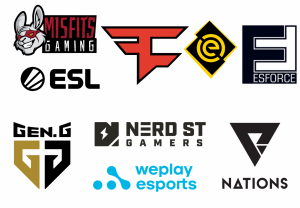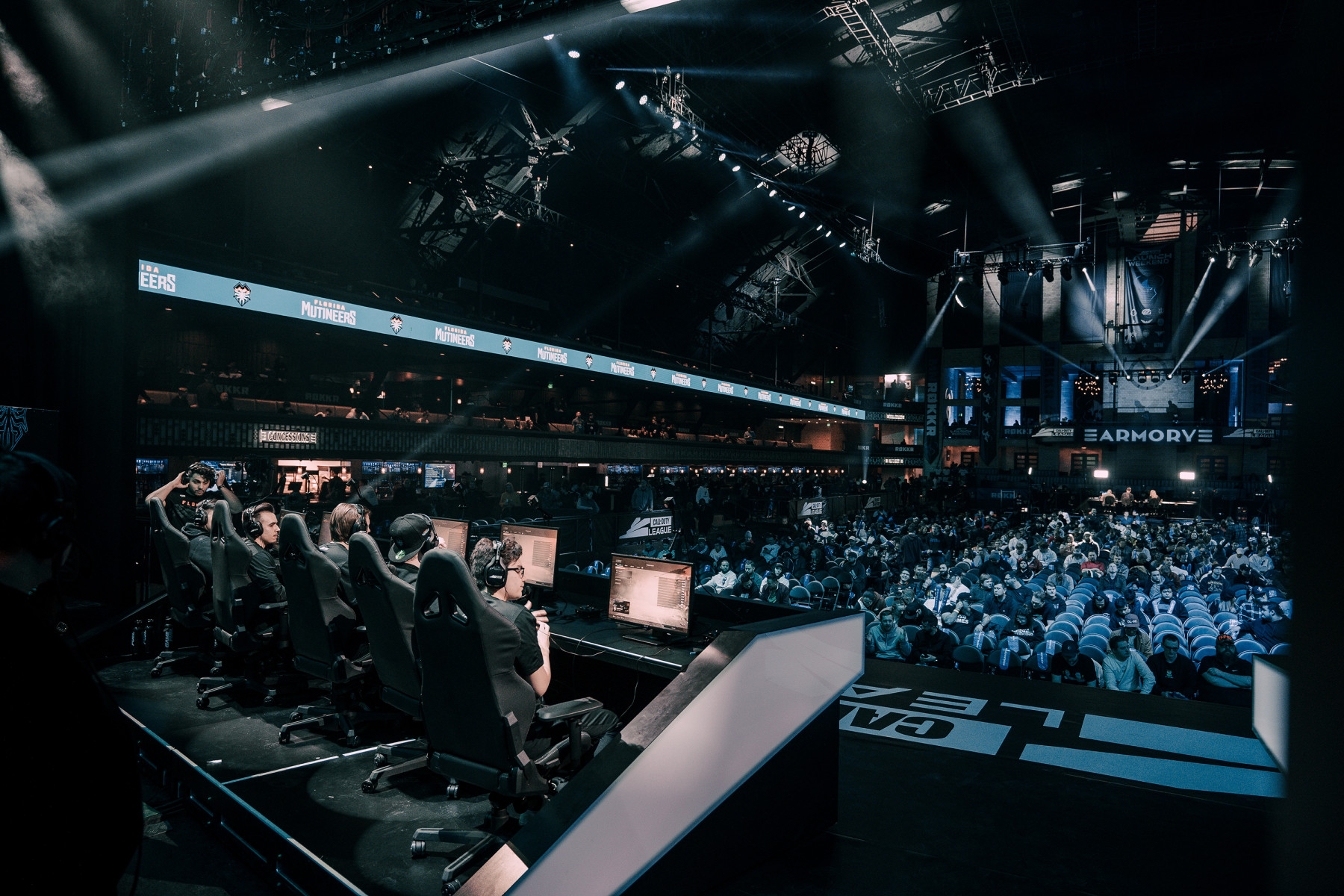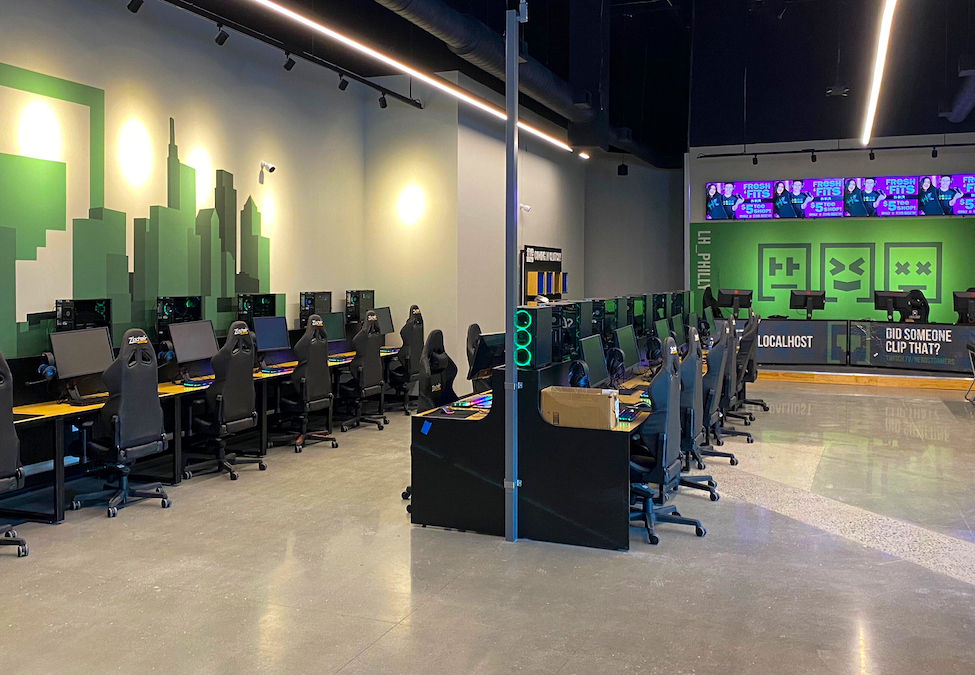Gratuitously lauded across headlines throughout the year, esports enjoyed far more limelight in 2020 than may have been anticipated in spite of its growth in recent times. Indeed, with the lengthy absence of sports, esports became something of a media darling. Despite this, the heavily impacted physical events sector of the industry should not be discounted.
The sector was quick to levitate from its typical structures by embracing digital, virtual and mixed reality formats, bubble structures, and remote work – but the bottom line remained contingent on physical attendance.
In order to provide a round-up of 2020, Esports Insider spoke to a variety of stakeholders around the industry to reflect on one of the most unconventional years in recent memory. Ranging from esports organisations and league operators to esports business suppliers, this two-part perspective covers all corners of the sector.
In this first entry, respondents recalled how the year treated their businesses, what their crowning achievements were, and whether 2020 was a defining period for esports.

The 2020 treatment
Any overview of 2020 is likely to appear as an anomaly in terms of metrics, but there’s a high chance that this could have been an instrumental year for a variety of trajectories and contingency plans.
Ben Spoont, CEO and Co-founder of Misfits Gaming Group, told Esports Insider: “2020 has been a bittersweet year for us as a whole. We were planning more live events than we’ve ever done, ranging from hundreds to thousands of fans, and more opportunities for local engagement, but that all had to change with COVID restrictions.
“We had to adapt, get creative and go online, and now we’re running our own online tournaments, like our Florida Mutineers Release the Kraken Invitational with hundreds of thousands of dollars in prize pools.”
2020 saw a rise in charity streams, online tournaments, and digital activations not confined to esports. Genres and brands intermingled in new ways trying to provide fan engagement opportunities. These new blends found an on-and-offline footing where they could look to emulate, or in some case replicate, event and tournament structures which took place prior to the pandemic, whether that be online or through the use of an offline bubble system, such as this year’s League of Legends World Championships.

FaZe Clan CEO, Lee Trink, also elaborated on how the organisation’s diverse revenue streams helped provide growth throughout the year: “2020 was a mixture of challenges and successes. We were fortunate to enjoy continued growth, but, more importantly, we demonstrated to the rest of the esports industry that we have a business model that truly works. A model that’s scalable, sustainable and lucrative.”
Nevertheless, organisations were not the only entities that were affected by the happenings of 2020. Tournament organisers, publishers, and suppliers exist as unique cogs in the esports machine. Arnoud Schonis, Esports Project Manager of eDivisie, the Dutch FIFA League Operator and a division of the Eredivisie, shared how its league adapted following the competition’s hiatus during the pandemic.
“We changed to a fully online setup and with 18 clubs and 36 players, you can imagine this is a huge effort,” Schonis said. “The pace of which we set this up was amazing. We have highly qualified people on board and that definitely shows in how our league is now produced.
“Also, the clubs and players had to adjust. They had to invest more time and effort in making these matches possible, seeing the fact that connections had to be made, locations had to be transformed and players were managed from a distance.
“We find that the eDivisie has become more accepted, especially by potential commercial partners. Now that H&M and KPN have tied themselves to the eDivisie, this shows that the interest in the eDivisie is still there and is actually growing.”
[primis_video widget=”5182″]
RELATED: Meet the Esports Insider Hall of fame Class of 2020
Not without its highlights
In Q4 of 2020 alone, parent company Modern Times Group merged ESL and DreamHack into ESL Gaming, and DreamHack celebrated its 26th anniversary with a visual rebrand. Esports Insider Hall of Fame Class of 2020 inductee and COO of DreamHack, ESL Gaming GmbH, Anna Nordlander was most proud of the execution of the merger, she told Esports Insider.
“Although we’re still working on aligning everything internally, the sheer amount of work put into the project prior to the announcement was massive and done parallel to our regular operations.
“I’d also have to include our tremendous success in viewership numbers for 2020.” She added, “Our team has put a lot of work into continuing to produce first-class esports moments, and the positive feedback from the community has been a great acknowledgement of all the work we do.”
Patrick Mahoney, CEO of We Are Nations, also beamed about the launching of Nations Ventures this year: “We believe in gaming and esports, so doubling down in disruptive times made sense to us. One of the silver linings of 2020 was that since everyone was sitting around stuck at home and trying to figure out where everything was going, people from all areas of the industry just started talking to each other, and that’s where our early deal flow for the [investment] fund came from.”
Yaroslav Meshalkin, Chief Strategic Communications Officer, of ESforce Holding was proud to share two crowning achievements for his organisation: “The first is for our EPIC League, which, according to Esports Charts, became the most popular Dota 2 tournament of all time, excluding The International championships in 2017–2019. What a fantastic design was produced by our colleagues from Epic Esports Events and RuHub Studio, who were the operator and the broadcaster of the event!
“The second crown goes to our Virtus.pro esports club, which has made its Dota 2 and CS:GO teams great again this year. With triumphal rush into the world top-five by earned prize pools.”
2020’s significance
With both memorable and forgettable moments that this year has provided, its significance in the great scheme of things will not go unnoticed. As we close in on the new year, Esports Insider asked whether 2020 was a defining moment for the industry’s trajectory.
“Esports jumped from vying for mainstream status in sports to taking centre stage as live events were sidelined,” said Chris Park, CEO of Gen.G. “While we missed the value of live events, we are fortunate to have an ecosystem that can still thrive online. There is no doubt we have our work cut out for us to continue connecting with our fans digitally until we can return to live events.”

Faze Clan’s Trink added: “2020 was a year when traditional sports and entertainment nearly stood still. As a result, there was a spotlight on this industry that made it clear to anyone paying attention, that esports and gaming has to be considered alongside any other sport, and any other pillar of the entertainment industry overall.”
Sports are an undeniably fundamental aspect of civilisation and in 2020 this continued thanks to the electronic aspect of esports. The global situation no doubt forced the hand of many to investigate esports entertainment more earnestly, as more than ever traditional sports organisations turned to invest into esports solutions.
Oleh Humeniuk, CEO of WePlay, a media holding company, agreed: “In 2020, the lines between esports and traditional sports have been blurred. As the habits of millions of people have changed, that’s one of the reasons behind the announcement of the WePlay Ultimate Fighting League by the company’s Managing Partners Yura Lazebnikov, Oleg Krot, and undisputed world cruiserweight boxing champion Oleksandr Usyk — to make it a habit for people to watch exciting esports matches that are easy to understand and enjoy even for the non-gamers.”
Nerd St. Gamers CEO, John Fazio, also saw the relationship between sports and esports fans tighten this year. “2020 defined adaptability. For esports specifically, while our primary competitions were also shut down and unable to play in person, we saw a new wave of fandom enter the space as people were unable to watch their favourite traditional sports teams compete, and craved to watch competitions.
“We also saw an increase in both casual and competitive gameplay, as more people adopted competitive gaming as a means of safely socialising with friends and fuelling their competitive spirit.”

“All other worlds and all other industries, including the ‘traditional’ sports, got an idea of the advantages of collaboration with esports. That was a revolution in the mindsets, I suppose.” Meshalkin of ESforce shared. “Esports, our technologies and even our fanbase became highly demanded. Russian hockey stars playing CS:GO show matches in the height of the NHL season – who could imagine that before the pandemic?”
Digital infrastructures proved how robust they were as the main source of communication and entertainment, spanning across networks globally though video conferencing and streaming entertainment. This year, esports sat closer to the head of the competitive entertainment table than ‘traditional’ sports did.
Despite the pivots, rebounds, and turnovers that took place in 2020, it likely will not be seen as an ideal year by any invested party. However, esports showed up to these challenges ready to play. As the world looks, however cautiously, forward to a new year with new challenges – the cogs in the esports machine are greasing themselves. Hardened from the lessons they’ve learned this past year, it’s likely that when the industry enters into 2021 – esports entities will continue to develop and grow in this ever-changing world.
Stay tuned for part two of the wrap-up.
[maxbutton id=”14″ ]
